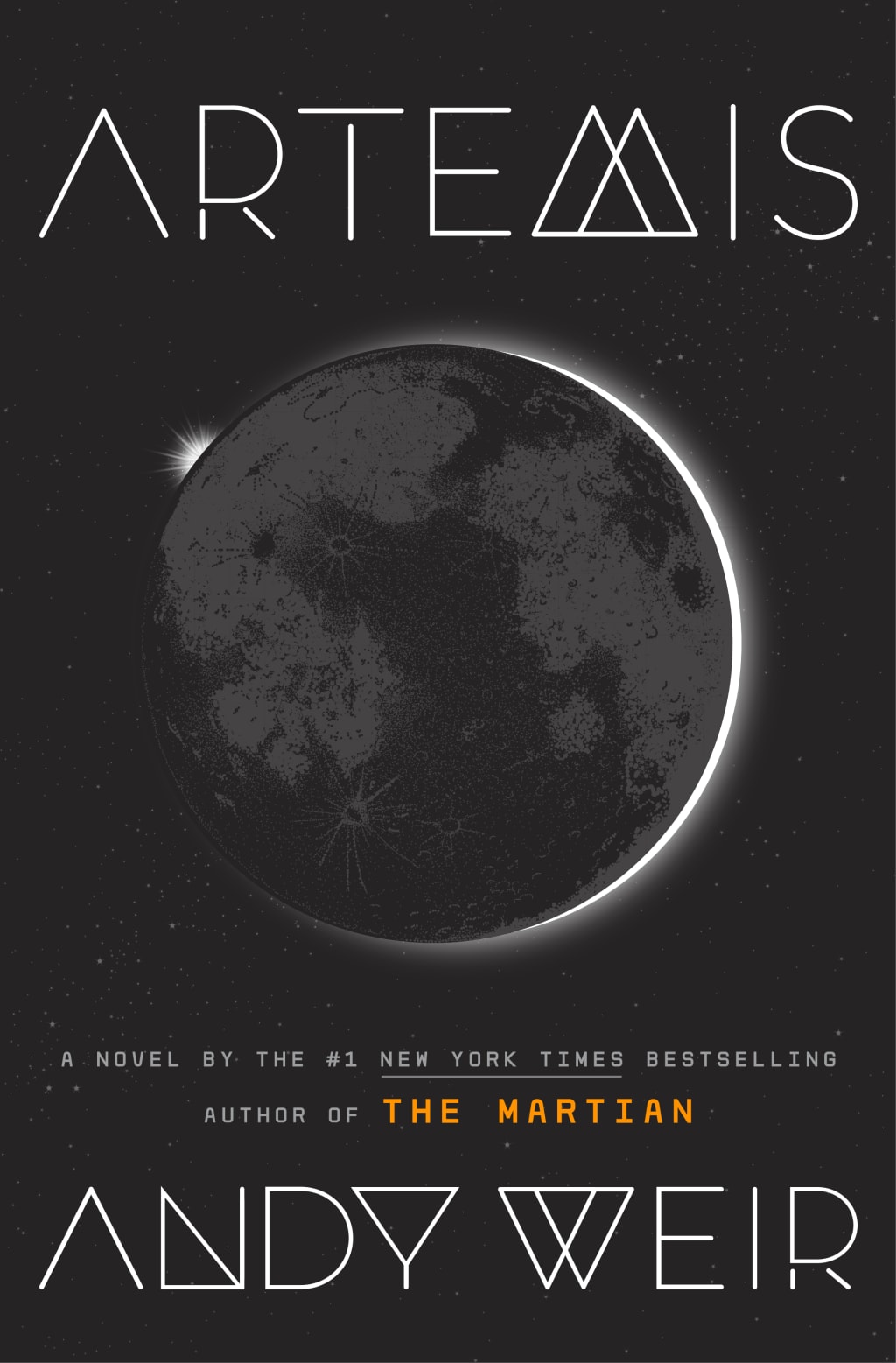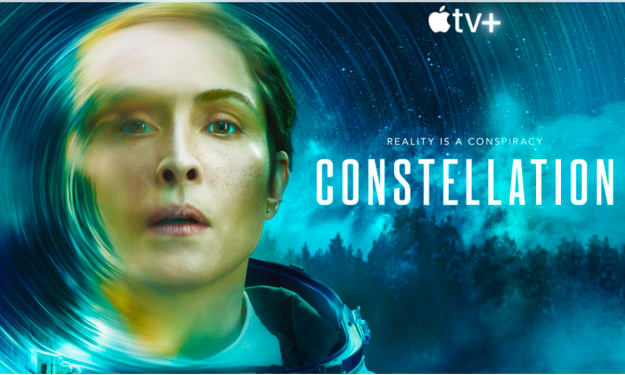Andy Weir Comes Clean on How and Why He Writes
'Artemis'—Weir's New Book Published on November 14

I’ve just finished reading Andy Weir’s new book, Artemis. This time, Weir’s characters inhabit a colony on the moon in the late twenty-first century. Because there’s been so much talk recently about the colonization of Mars, I was interested to learn what Weir had to say on the moon becoming a colony versus Mars.
“I think we will colonize the moon before we colonize Mars. While Mars has more raw materials, the moon is just so much closer it’s considerably easier to colonize. Also, unlike Mars, the moon could be a tourist destination due to the comparatively short travel time to get there.”
I always enjoy the detail of Weir’s settings and his scientific solutions to complicated scientific problems. This time, however, besides being a human versus nature struggle, his book presents a crime story with mysteries involved. In Weir’s own words, “a plot that was harder to write but also more interesting, I think.”
Those of us who are fans of Weir’s first book The Martian will find Artemis a very satisfying read. I really enjoyed it, and I particularly liked his female heroine, Jazz Bashara. As Weir says “all I ever want when I write a story is for the reader to think well, that was cool when they’re done.”
As a science fiction writer myself, I’ve been in touch with Andy for about a year now always receiving encouragement and advice from him. Recently I had the pleasure of interviewing him.
Felicity Harley: What got you into writing science fiction—you’ve been writing it since your early twenties?
Andy Weir: I’ve always been into it for as long as I can remember. I think the main influence there was my dad, who is also a huge sci-fi fan. Growing up, I had access to his inexhaustible sci-fi collection—mostly books from his youth. From the 1950s, 60s, and 70s.
Who is your favorite science fiction author? Favorite plot?
Isaac Asimov. He set the gold standard for science fiction. I’m not sure what you mean by favorite plot. You mean a general plot that’s found in many stories? Or a specific book? I like survival stories like Heinlein’s Tunnel in the Sky. And I enjoy the realistic science in hard sci-fi like Larry Niven’s Ringworld.
You’ve achieved what all young authors dream about—fame and a large audience of readers. Can you give them some advice? Not in general terms but a list of specifics related to developing their writing?
1) You have to actually write. Daydreaming about the book you’re going to write someday isn’t writing. It’s daydreaming. Open your word processor and start writing.
2) Resist the urge to tell friends and family your story. I know it’s hard because you want to talk about it and they’re (sometimes) interested in hearing about it. But it satisfies your need for an audience, which diminishes your motivation to actually write it. Make a rule: The only way for anyone to ever hear about your stories is to read them.
3) This is the best time in history to self-publish. There’s no old-boy network between you and your readers. You can self-publish an e-book to major distributors (Amazon, Barnes and Noble, etc.) without any financial risk on your part.
Do you write every day?
When I’m working on a book, yes. But when I’m between books (like now) I’ll go a long time without writing anything.
Where do you get your inspiration for what you write? How did The Martian first come to you as an idea and as a story for instance?
I was imagining how to do a manned mission to Mars and all the things that could go wrong. As I thought of how to design for those scenarios, I realized the scenarios themselves were interesting. So I created a hapless main character and subjected him to all of them.
In general, I start with the setting. With Artemis, for instance, I worked out the details and economics of how the city came to be and how it was constructed before I started making the characters that lived in it.
What is the most important lesson that you’ve learned as a writer?
You have to write. It’s easy to convince yourself that you’re “writing” when you’re brainstorming ideas. But that’s not writing. You have to put words down on a page.
What would you have a young writer do to gain an audience for their work?
Blog posts or some other form of posting on the internet. If your stories are good, people will send links to their friends and you’ll get good word-of-mouth. At least, that’s what happened to me.
How do you think early and fast fame changed your plans as far as writing is concerned?
Not really. Because it wasn’t quite fast fame. I spent 20 years failing before I got my first success. So my style and approach hasn’t changed much as a result of The Martian.
Have you become a commercial commodity and lost control over what you write—something every writer who becomes successful nowadays fears. For instance in the old days publishers were concerned with quality, now it’s more about commercial success and sales.
That hasn’t been a problem for me so far (knock on wood). My editor (Julian Pavia at Crown) is driven by what makes a good story. I’ve never once heard him say anything about marketability or demographics of readership. His approach is that if a story is good, it’ll sell.
Were you disappointed not to continue with Zhek, which you’ve described as "a more traditional sci-fi novel. It has aliens, telepathy, faster-than-light travel, etc"?
I was disappointed, but it was the right call. And it was entirely my decision.
What persuaded you to stop writing that and write Artemis, your latest book, instead?
The book just wasn’t working out. It wasn’t a good book. I didn’t want to release a dud. So I asked the publisher for more time because I wanted to hit the reset button. Thankfully, they let me do it. I’d had the idea for Artemis for quite a while, so I ran with it. And it worked out well, because Artemis is far better than Zhek could have been. I can say that with 100% confidence. Now, whether or not Artemis is a good book compared to The Martian or other sci-fi on the shelves… that’s for the readers to decide.
What do you personally like most about Artemis, and why do you think it’s a good read?
I love world-building. I think most authors do. But in this case the world-building worked heavily into the story and primary plot. The plot, by its nature, gave me excuses to show my ideas on how a lunar city would work out. When I was a kid reading classic sci-fi, I would get entranced by the details of life living in space or on another planet. I wanted readers to get that sense of wonder from Artemis.
In The Martian you have a male protagonist—Mark Watney. In Artemis your protagonist is female—Jazz Bashara. Even though there are profound character differences—Mark is a hard-working scientist, and Jazz is a very smart, entrepreneurial and unconventional survivor—how did you articulate/discover both of these characters for yourself?
Well, Mark is the idealized version of me. He has all of the qualities I like about myself and none of my many flaws. Plus, he's better at the stuff I'm good at than me. He's what I wish I were. Jazz is more like the real me. Flawed, makes bad decisions, has regrets, but still a strong moral code.
Is it harder writing a male versus a female character?
As for writing a female lead, that was a challenge. I ran the manuscript by as many women as I could trust with it to give feedback, but in the end, I'm not a woman. So I just had to give it my best shot.
Do your characters speak to you?
Well, one time, while I was at my day job of computer programming, I was working through a conversation two characters were going to have in my story. I mumbled both parts to myself as I walked. When I got to the door, I walked through and held it open for a moment. I realized I was holding it open for the "other character" that I was talking to.
How do you see yourself evolving as a writer over the next ten years?
I am a very plot-driven author so, unfortunately, I tend to make shallow characters. I would like to get deeper into character development and the inner-workings of people. I still have a lot to learn in that area. I took a stab at deeper, more complex characters in Artemis, but I suspect they’re still shallow compared to most other fiction.
Will you make The Martian and Artemis into a series and then perhaps break away and start something entirely new altogether?
The Martian is strictly stand-alone. I have never come up with any idea for a plausible or entertaining sequel. But I would love to make Artemis into a series. Not just a series centered on Jazz Bashara (the main character of Artemis) but a series that centered on the city itself. Different books could have different main characters. Their stories could overlap or barely touch. One book’s protagonist could be a minor character in another book.
Basically, I would love for Artemis to be like Terry Pratchett’s Discworld. The more independent stories you tell in the same setting, the more real and tangible the setting feels across all the stories.
As for ideas unrelated to Artemis—of course I have those! Coming up with story ideas is easy. I have more book ideas in my head than I have remaining lifespan to write. So that’s not a problem. Which story I write will depend on reader feedback from the previous stories. What they like and what they don’t.
How would you describe yourself to others?
“Science dork.”
What else would you like to tell me that I haven’t asked?
Nothing comes to mind.
About the Creator
Felicity Harley
Felicity Harley is a polished public speaker, published journalist, and writer. Along with her career as a nonprofit executive, she served for twenty years on the board of Curbstone Press, an internationally recognized publishing house.






Comments
There are no comments for this story
Be the first to respond and start the conversation.